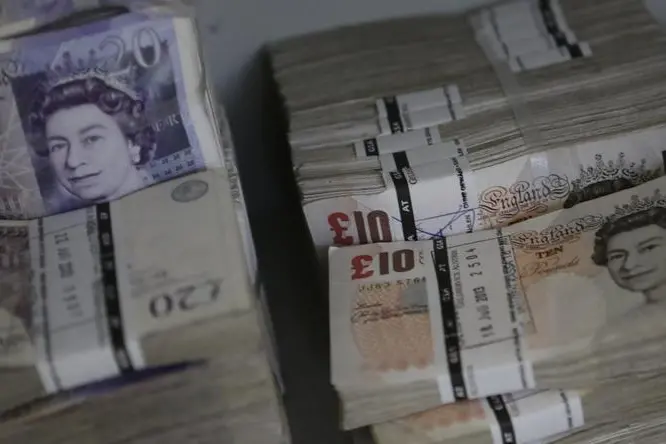PHOTO
LONDON - The pound weakened on Friday after data showed that British retail sales unexpectedly fell in October, as cash-strapped consumers stayed at home, stirring up investor concern about the resilience of household spending power.
Retail sales volumes dropped 0.3% month-on-month, following a revised 1.1% decline in September that was worse than first estimated, the Office for National Statistics said.
Economists polled by Reuters had forecast sales volumes would rise by 0.3% on the month in October.
Sterling was heading for a 1.3% rise against the dollar this week, largely as a result of U.S. inflation data that suggested there is no need for the Federal Reserve to raise rates again any time soon.
Against the euro, which can offer a cleaner read on sentiment towards the pound, it has made little headway on a weekly basis, up just 0.1%, having dropped for three straight days against the single European currency.
Behind the softness is a reassessment by investors of the outlook for UK interest rates. Futures markets show traders expect interest rates to fall by around 80 basis points by the end of 2024 from 5.25% currently, compared with a decline of just over 50 bps a week ago.
"The decline in retail sales and the drop in the value of the pound show that the UK economy is struggling. People are feeling the effects of the high cost of living, which is causing them to spend less money," IG analyst Jeremy Naylor said.
Sterling was last down 0.1% on the day at $1.24, while the euro was up 0.2% against the pound at 87.55 pence.
"The dovish repricing of BoE policy expectations has contributed to the pound underperforming modestly over the past week. It has resulted in EUR/GBP climbing to a fresh high yesterday of 0.8766 as it moves further above support from the 200-day moving average at around 0.8685," strategists at MUFG said.
Separate releases this week have painted a mixed picture, as a welcome slowdown in UK inflation and robust wage growth suggest consumers are in a good place heading into the key holiday season shopping period.
But cracks are starting to appear elsewhere, according to various data points this week. The economy avoided falling into recession in the third quarter of this year, but failed to grow.
House prices staged their first annual fall since April 2012 in the year to September, while private rents soared - a sign lofty mortgage rates are turning would-be homeowners into tenants.
Another government report showed business insolvencies in England and Wales rose 18% in annual terms in October, under pressure from rising interest rates and a steep increase in the cost of energy, for example.
Finance minister Jeremy Hunt delivers a budget update on Nov. 22 in which he has pledged to focus on boosting growth ahead of an expected general election next year.
Hunt has ruled out big tax cuts next week in the so-called Autumn Statement, but media have said he is considering raising the threshold at which individuals pay inheritance tax, a potentially popular move for Conservative voters even if many are unlikely to have to pay it.
(Reporting by Amanda Cooper; Editing by Susan Fenton)





















